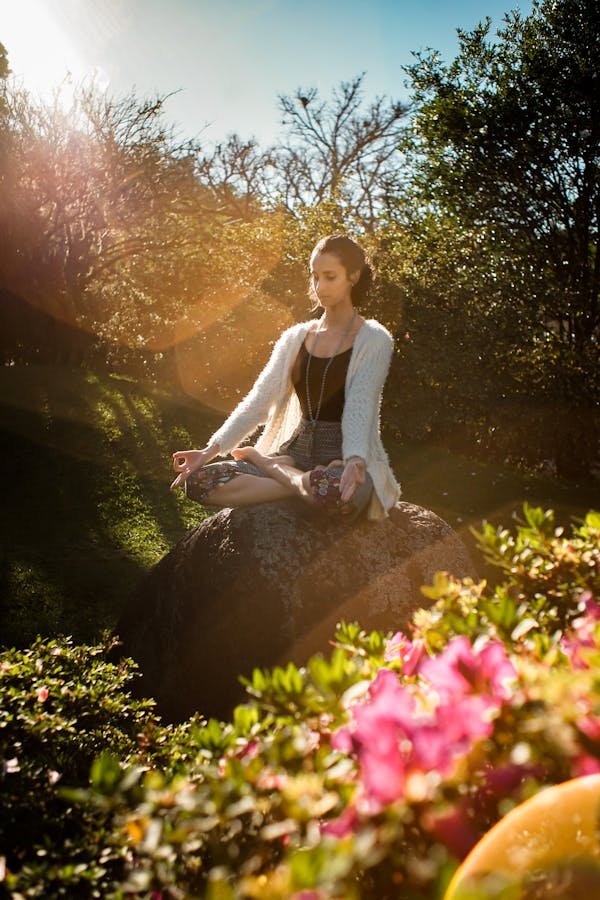Follow us and share.
Alternative Therapies for Mental Well-being
Discover how alternative therapies such as yoga, meditation, art therapy, and occupational therapy can improve mental health. Learn about their benefits and how to integrate them with traditional treatment.

Integrating Complementary Therapies in Mental Health
The treatment of mental health disorders has evolved over time, incorporating not only traditional medical and psychological approaches, but also alternative therapies that can improve emotional well-being. Practices such as meditation, yoga, and art therapy have been shown to be effective tools for reducing anxiety and depression, providing a holistic approach to mental health.
While these therapies should not replace conventional medical treatments, they can complement and enhance the effects of psychotherapy and medicationThe combination of these strategies helps reduce stress, improve the mind-body connection, and promote lasting emotional balance.
Benefits of Integrating Alternative Therapies with Traditional Treatment
Alternative therapies offer multiple benefits when combined with conventional mental health treatment:
📌 Stress and anxiety reduction: Techniques such as meditation and conscious breathing help calm the mind and lower cortisol levels.
📌 Better emotional regulation: Art therapy and yoga facilitate emotional expression and encourage self-exploration.
📌 Increased physical and mental well-being: Physical activity and deep relaxation promote the release of endorphins, promoting a feeling of general well-being.
📌 Improved focus and concentration: Mindfulness meditation helps develop full attention and reduce mental rumination.
WHO – Guide on complementary therapies and mental health.
How Yoga, Meditation, and Art Therapy Help Mental Health
📌 Yoga:
- Improves flexibility, strength and posture, reducing muscle tension associated with stress.
- Promotes relaxation through conscious breathing and movement.
- Helps reduce symptoms of anxiety and depression by balancing the nervous system.
📌 Meditation and Mindfulness:
- Reduces intrusive thoughts and mental hyperactivity.
- Improves self-awareness and the ability to regulate emotions.
- It decreases the activation of the stress response, promoting a feeling of calm.
📌 Art therapy:
- It allows emotional expression through art, promoting the communication of feelings that are difficult to verbalize.
- Stimulates creativity and the development of cognitive skills.
- It has been used successfully in the treatment of anxiety, mood disorders, and trauma.
American Psychological Association – Resources on complementary therapies in mental health.
Occupational Therapy and Its Relationship to Mental Well-being
The occupational therapy It plays a crucial role in mental health, as it is based on the importance of work and daily activities as therapeutic tools. Its approach aligns with other alternative therapies by promoting autonomy, self-expression, and active participation in everyday life.
📌 Relationship with mental health:
- Promotes independence and the development of skills to cope with stress.
- Facilitates the integration of meaningful activities to improve self-esteem.
- Supports the creation of healthy routines that reinforce emotional stability.
📌 Benefits in combination with alternative therapies:
- The use of activities such as gardening, writing, or painting aligns with art therapy.
- The incorporation of physical exercises and relaxation techniques complements yoga and meditation.
- Improves time management and productivity, reducing anxiety and stress.
AOTA – Information on occupational therapy and mental health.
The Importance of Physical Exercise for Emotional Well-being
Regular exercise is one of the most effective ways to improve mental and emotional health. Some reasons why physical activity is key include:
📌 Stimulation of positive neurotransmitters: Exercise releases endorphins and serotonin, key neurotransmitters in regulating mood.
📌 Stress reduction: Activities such as walking, running, or yoga help release accumulated tension and promote relaxation.
📌 Improved self-esteem and overall well-being: Regular physical activity boosts self-confidence and contributes to a healthy lifestyle.
📌 Increased energy and sleep quality: Exercise improves sleep quality and combats chronic fatigue, important factors in mental well-being.
Mayo Clinic – Information on exercise and mental health.
Conclusion: A Comprehensive Approach to Mental Health
The alternative therapies They can be a valuable tool in promoting mental and emotional well-being. Integrating them with traditional treatments allows for a more holistic approach to mental health, enhancing their benefits.
The occupational therapy, by focusing on the importance of work and daily activities, further reinforces the need for a holistic approach. Each person responds differently to therapies, so it's important to explore various options and find those that best suit your needs.
🌟 Advice: If you're considering incorporating alternative therapies into your mental health routine, consult with a healthcare professional to ensure they're right for you.



